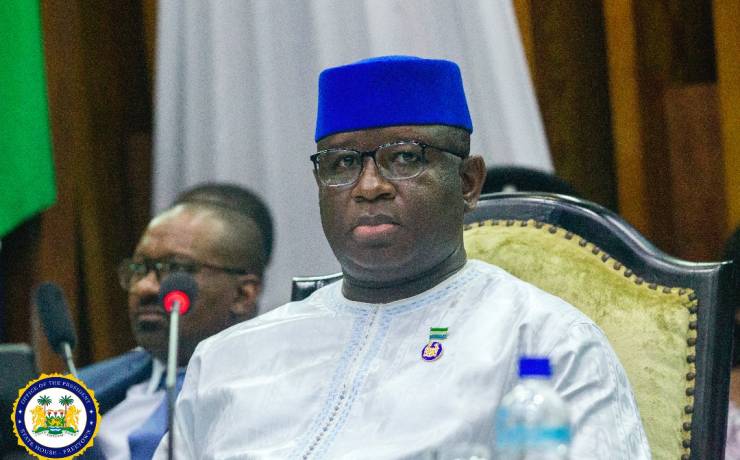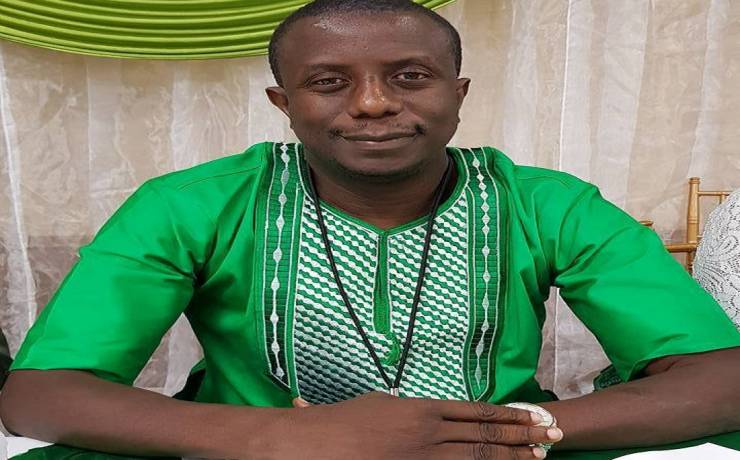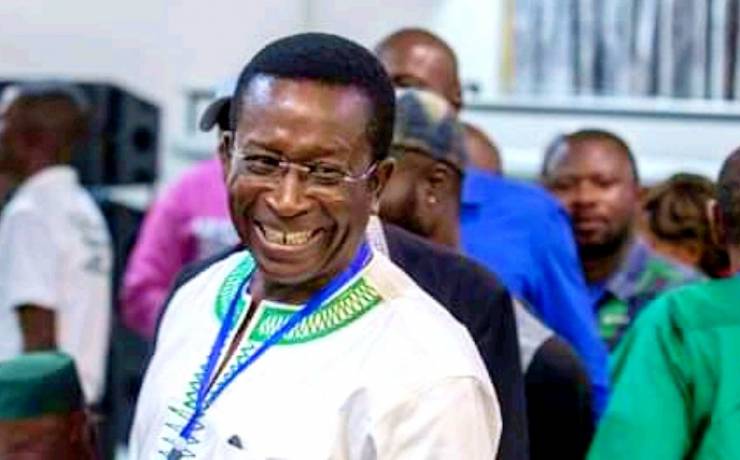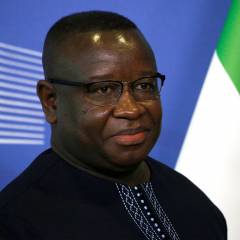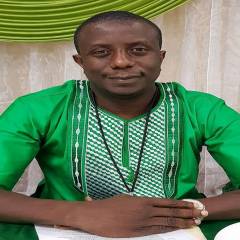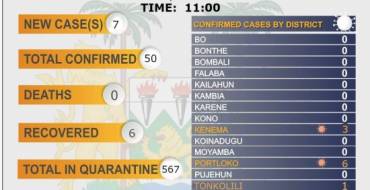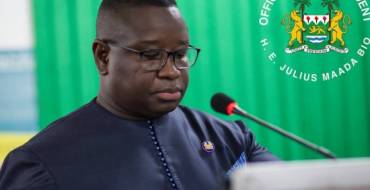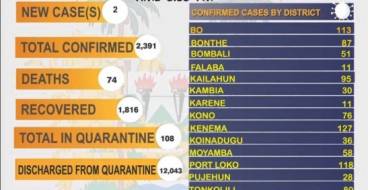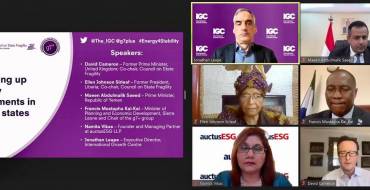BRIEF HISTORY OF THE SLPP
SLPP dominated politics in Sierra Leone in the years following World War II. In 1955 and 1956, riots occurred in Sierra Leone, originally sparked by the artisan union’s strike over pay; further unrest followed strikes by transport workers. These events grew animosity between the SLPP and Krio parties, especially the Cyril Rogers-Wright led United Sierra Leone Progressive Party, established in 1954. The SLPP positioned itself as “the countryman’s party,” and garnered the support of tribal chiefs.
After elections in 1957, Milton Margai bowed to behind-the-scenes pressure and stepped down from SLPP leadership, replaced by his brother Albert Margai. However, in 1958, Albert Margai and Siaka Stevens launched a new party, the People’s National Party (PNP), which aimed for greater African involvement in the British colonial government. With the independence of Ghana in 1957, the PNP sought the support of the educated elite to lead a transition to independence. Stevens would later leave the party to form the northern-supported All Peoples Congress. Upon independence in 1961, Milton Margai became Prime Minister, and the SLPP became the ruling party. The SLPP, along with almost all Sierra Leonean political parties, signed the constitution at the London constitutional conference; the APC was the notable exception. This unity did not extend to national politics, as opposing politicians often faced detainment under SLPP rule.
Sir Milton Margai‘s death in 1964 left SLPP leadership to his brother Sir Albert Margai. Albert’s rule was characterized by dissent. Politically, he attempted to strengthen the position of SLPP elites relative to the chiefs, who had formed the backbone of the party. Albert’s autocratic leadership style was questioned within his party, sparked by actions such as the demotion of senior party members Alhaji M.S. Mustapha and Kerefa Smart. Albert also embarked on a policy of Africanisation, which removed some civil servants who favored a colonialistic approach. Scores of schools were built in the provinces along with Teachers Colleges in every district (Makeni, Magbruka, Moyamba, and the Milton Margai Teachers College).
Opposing leaders criticized Margai’s presentation of a bill to establish a one-party system in Sierra Leone and also blamed Margai for developments had led to an economic slowdown. In the 1967 elections, the APC and SLPP each won 32 seats in parliament, with 2 former SLPP Independents siding with the APC MPs Kutubu Kai-Samba and Luseni A. M Brewah. This development confirmed that the SLPP would no longer lead the country.
The subsequent political unrest led to the declaration of martial law and a military coup that took full control of the national government. The National Reformation Council (NRC), led by Major Charles Blake, was established on 23 March 1967. Pressure from political elites, trade unions, and university students led to the junta’s collapse in November 1970, and Siaka Stevens of the APC became president after the interregnum.
Under Stevens, Sierra Leone became a one-party state. In 1978 all SLPP MPs except one (Manna Kpaka, MP in Kenema) joined the APC. The SLPP was outlawed, and its elites and supporters were physically threatened and barred from holding meetings..

| Abbreviation | SLPP |
|---|---|
| Leader | Julius Maada Bio |
| Chairperson | Prince Harding[1] |
| Secretary-General | Umaru Napoleon Koroma[2] |
| Spokesperson | Lahai Laurence Leema |
| Founder | Lamina Sankoh, Paramount Chief Julius Gulama, Milton Margai, among others |
| Founded | 1951 |
| Merger of | Peoples Party (PP), Protectorate Education Progressive Union (PEPU), Sierra Leone Organisation Society (SOS) |
| Headquarters | 15 Wallace Johnson Street, Freetown, Sierra Leone |
| Ideology | Social democracy Civic nationalism Third Way |
| Political position | Centre to centre-left |
| Continental affiliation | Democrat Union of Africa |
| Colors | Green |
| Slogan | “One People, One Country” |
NATIONAL EXECUTIVES OF THE S.L.P.P
Chairperson
Dr. Prince Alex Harding, He was the Minister of Safety and Security from February 2001 to May 2002,
Read morePresident Julius Maada Bio 2021 New Years Day Message

NPPA PHOTO GALLERY
Public procurement in Sierra Leone
Public procurement in Sierra Leone is subject to the Public Procurement Act 2016 (Gazette Vol. CXL VII, No. 10). Legislation can only provide the overall rules to be followed, and with the increasing value and complexity of procurement, effective guidelines and step-by-step procedures are required to assist civil servants, all public officials and other individuals involved or interested in the procurement process. Sound public procurement practices and policies are essential aspects of sound governance. Good procurement practices can reduce costs and produce timely service delivery. Poor procurement practices generally lead to delays and waste and are often the cause of government inefficiencies and allegations of corruption. Consistent application of the guidelines presented in this Manual will substantially improve public service delivery efficiency whilst reducing the perception and actual occurrence of corruption in public procurement in Sierra Leone.




